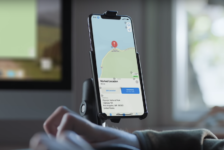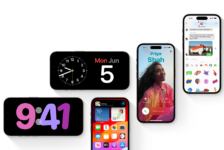For ten years I have been an Apple addict spending thousands of pounds on MacBooks, iPhones, Airpods, Watches, and Airport Expresses.
I have had brief flirtations with other devices and software like Samsung and Windows 10 but quickly dashed back to the Apple ecosystem. I have always thought their products “just work” and their seamless integration with each other is a huge pulling factor.
However, something significant happened at Christmas that for the first time has me questioning my loyalty to the mighty Apple. For me, it has smashed out that phrase by Steve Jobs boasting Apple products “just work”.
The truth is they don’t any more, or not as well as they could and should. Apple software has been on a long, slow decline. Full of annoying little bugs, shortcomings, missing features, and product delays; it would all have the perfectionist Jobs turning in his grave.
Apple, like Samsung and others, are rushing to copy each other just to keep up with consumer demands. One of the reasons why Apple is releasing more buggier software is because they need to release features faster to keep up with the competition. Apple might make a lot of revenue versus their competitors but that’s because they were able to sell on having a unique design or feature. Now the gaps for all manufacturers are closing so they’re all racing to have what each other have. After that there’s nothing to “innovate” on. We all know fingerprint under screens are coming but after that, it will be gimmicky things like holographic projections and that’s it. Smartphones will become obsolete because a new way to consume media will be introduced. Maybe through contact lenses or glasses of sorts.
In the home the big threat is from Amazon and their Echo devices powered by Alexa – Amazon’s intelligent voice assistant. In the autumn I set about automating my home with an ambition to control my lights, blinds, thermostat, and TV by voice. I have more reason than many to want to do this as I have muscular dystrophy meaning the muscles in my arms don’t work making something as simple as switching a light on and off impossible.

I started the project thinking my logical voice control method would be through Apple HomeKit, Siri, and the various Apple mobile devices I already own, including iPhone, MacBook, and Apple Watch; how wrong I was. Apple has a fairly closed garden when it comes to working with third-party apps, and the smart devices HomeKit works with are limited. In contrast, Amazon has been in the smart home game for much longer and has an ever-expanding list of integrations with third-party developer skills and device manufacturers.
As a small example of how Apple is falling behind Amazon take Siri Apple’s voice assistant. Since 2011 when it was released I have used Siri a lot at home to phone family by old-fashioned phone call and by FaceTime. At the start it seemed so liberating to do that by voice. But while Apple has freed me to make calls by voice, in more than seven years it has still not enabled users to hang up a call by a voice command. Just this week I got into a pickle when phoning my brother. I initiated the call by Siri on my iPhone, which was plugged in on a charging stand at the time. Great so far, but no answer, call went to voicemail, left a message, but Siri has no option to hang up a call, so I had no choice but to pad my voice message out for two long minutes until the voice mailbox was full and the line went dead. A simple “call me back” message to my brother turned into War and Peace! How ridiculous and inconvenient is that.
How does Amazon deal with hanging up a call on their much cheaper Echo devices? Well very easily indeed. Just tell Alexa to “stop”. How easy is that. Why then in 2018 does Siri always leave me hanging on the telephone? I can’t tell you the countless embarrassing and inconvenient moments I have had with the lack of this feature on a number of Apple’s products.
I could list many other missing features:
Why can’t you activate Siri on an Apple Watch without moving your wrist?
Why do you have to double tap Airpods to activate Siri?
Why can’t you whitelist contacts for auto answer in IOS 11?
Why can’t you toggle auto answer on and off by Siri?
Why aren’t there Hey iPhone/iPad/Watch/HomePod commands to direct Siri responses?
The answer to the lack of these obvious convenient features lies in software development that lacks user convenience as the end goal, and lack of hardware integration such as coprocessors necessary to make these things happen without draining battery on mobile devices.
Steve Jobs’ mantra “they just work” has a fairly hollow ring to it these days because it is these little convenient software and hardware features that are drawing me closer and closer to the Amazon ecosystem. Because Amazon is drawing me in I am ditching my Apple Music subscription in favour of Amazon Music. I hardly ever use FaceTime anymore, and god forbid once Amazon adds traditional mobile and landline calls to Alexa powered Echo devices, as Google is doing to Google Home, my iPhone and Apple Watch could find themselves dead in the water, in my home at least, and possibly other homes too.
Before the recent release of Homepod, Apple’s partial answer to Amazon Echo, it would have been daft to lump Apple’s Siri and Amazon’s Alexa into the same category. Yes, they’re both personal voice assistants that answer questions, tell you the weather, control your lights, and tell jokes. But up until now in reality, Siri and Alexa have been fairly different; Siri is on Apple mobile devices; Alexa is on home based mains powered speakers. Siri is tightly controlled by Apple; Amazon allows developers to create skills. Alexa can hear you from across the room; Siri needed to be close to you.
However, that’s all changed with the release of Homepod Apple’s first belated foray into the smart home speaker market. These voice assistants, whatever device they are on, are fast becoming an essential tool over everything both at home and out and about. I know one thing for sure now: I find myself increasingly using one of them much more than the other and this could potentially be bad news for Apple.
Sales of the Homepod are rumoured to be mediocre since launch last month while Amazon is churning out new product releases, software enhancements, and smart device partnerships at a prolific rate.
Just this week Amazon alerted me to the fact that I can now pair my Fire TV and my Echo devices, giving me hands-free control over Fire TV content on my television. Just ask Alexa to play and search for movies and TV shows, launch apps and control playback on my Fire TV. You can even show live video from compatible smart home cameras – all without having to pick up the remote.
Apple’s products and services create a high level of customer loyalty from people like me but with regular feature progressions like this from Amazon the writing is on the wall for Apple. Sort out HomePod, invest in Siri to make it a much better voice assistant, and add many of the conveniences that Amazon offers, or risk withering and dying in the home.
How did my home automation work out using Alexa and Amazon Echo? Well more of that in a future article but suffice to say by Christmas it all just worked. Thank you Amazon. I never thought I would hear myself saying that!
What are your views? As the smart home revolution gathers pace are you ditching your Apple devices in favour of Amazon’s in your home? What features do you think Siri and Alexa are missing?





